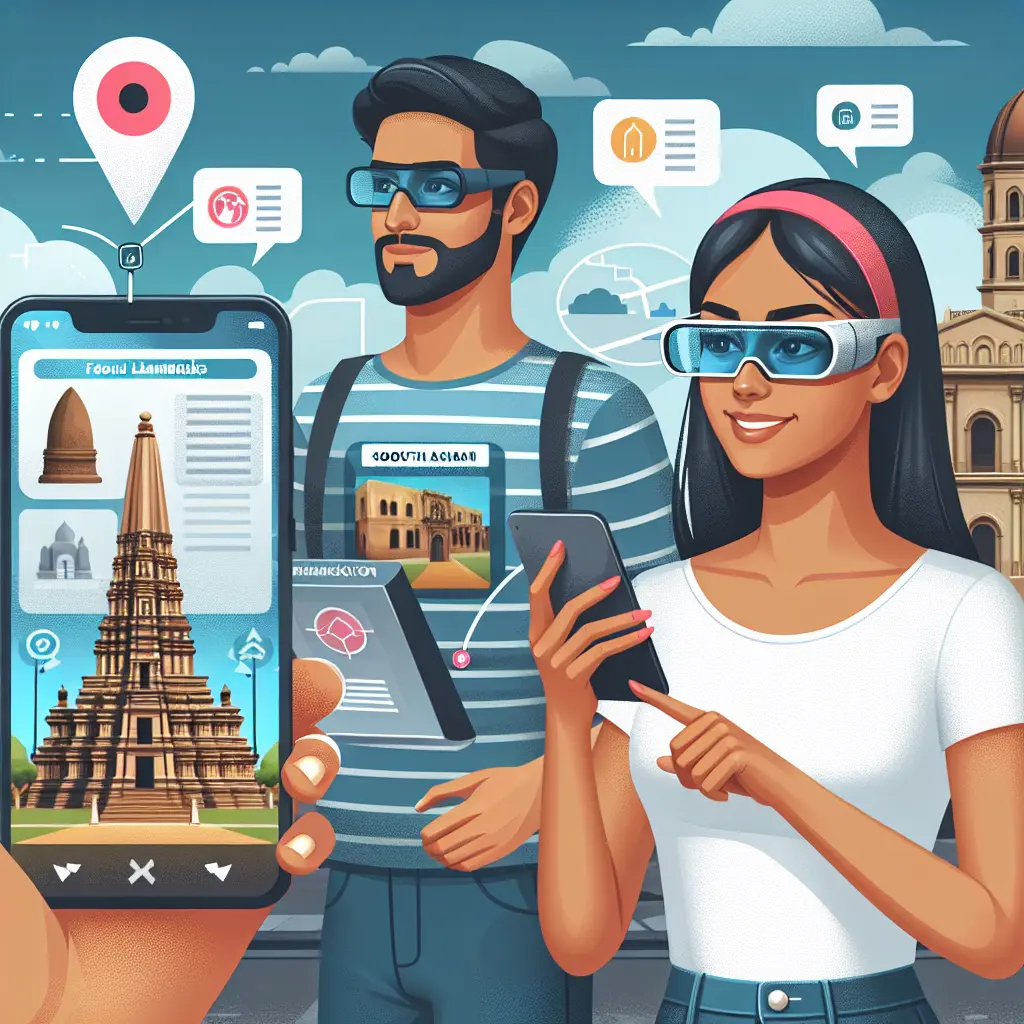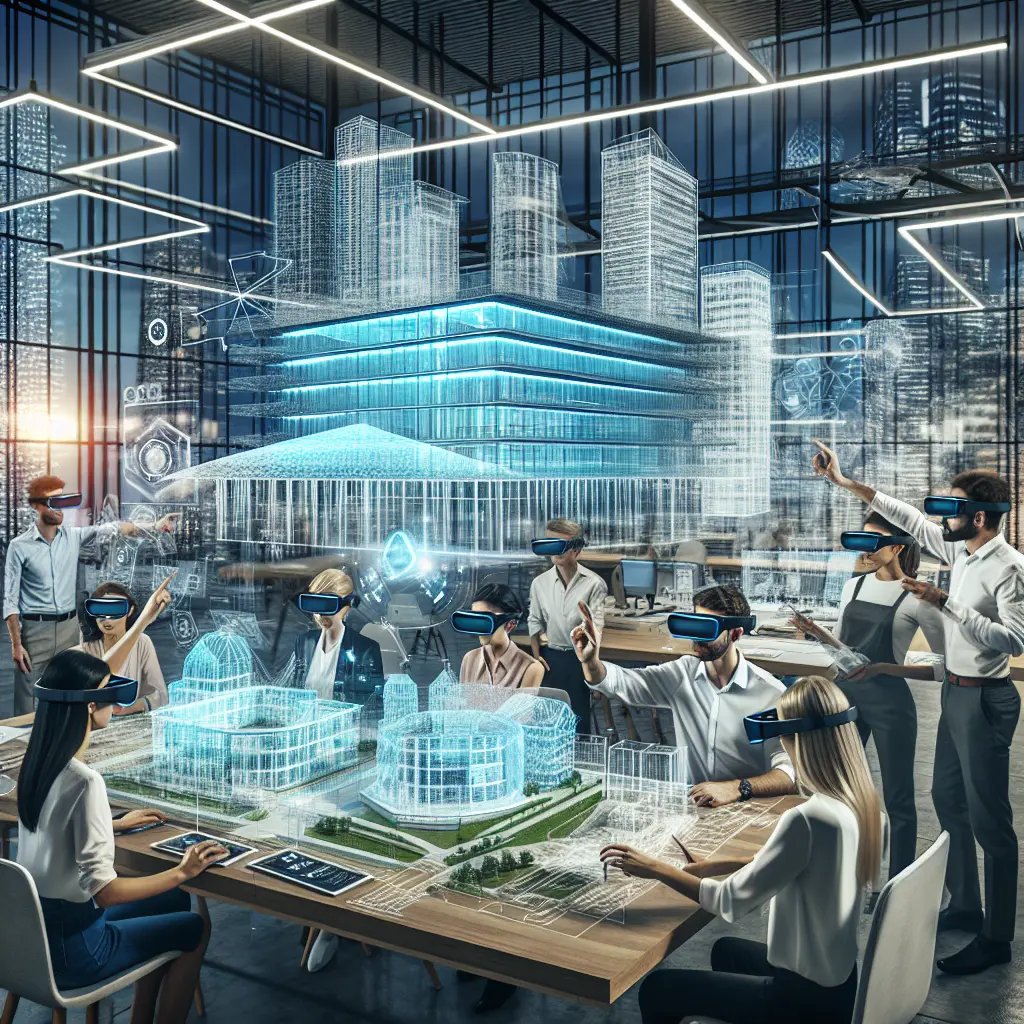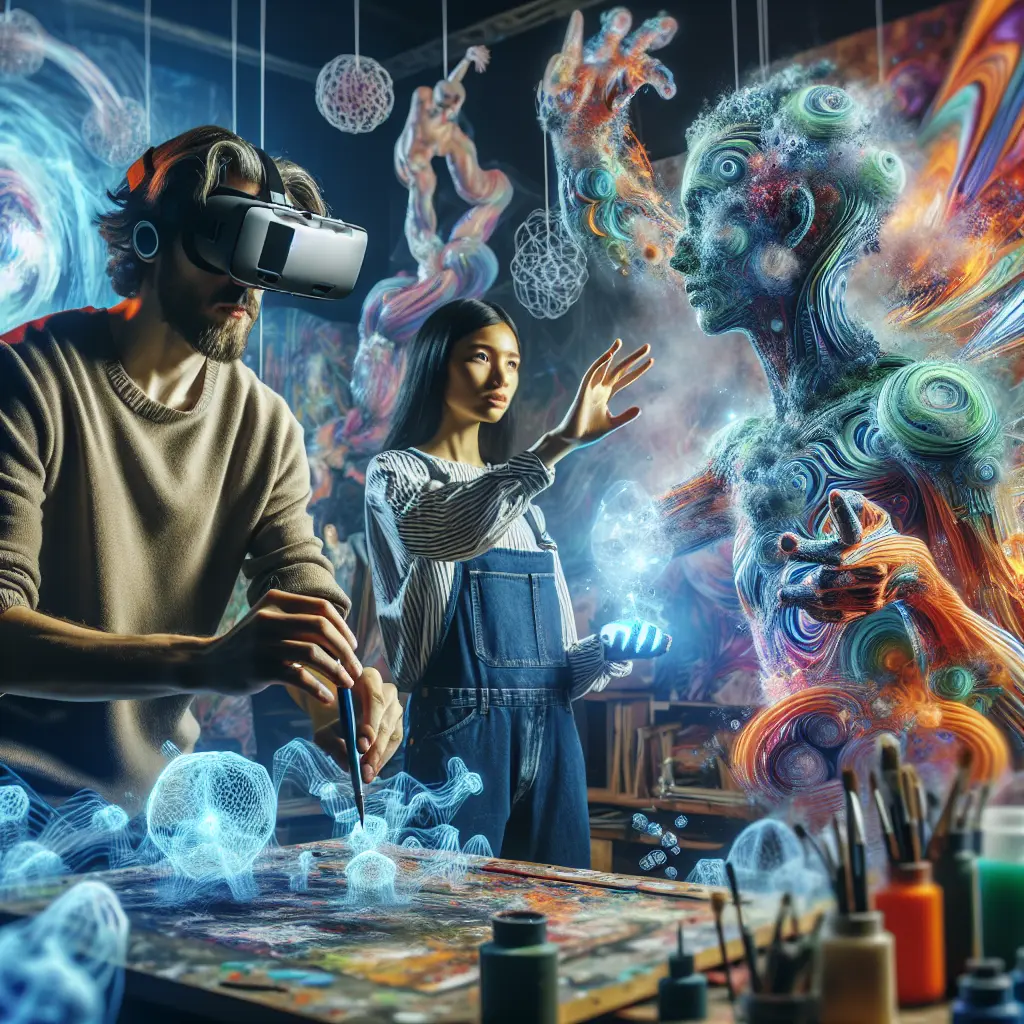In today's rapidly evolving digital age, augmented reality (AR) in tourism is revolutionizing how we explore the world. This innovative technology is transforming traditional travel into dynamic AR travel experiences, offering a unique blend of reality and virtual enhancement. Imagine wandering through ancient ruins with AR travel guides that bring history to life or exploring renowned museums where AR applications provide interactive insights into artwork. These immersive travel technologies not only enrich personal journeys but also pave the way for more sustainable and accessible virtual tours.
Augmented reality attractions are increasingly popular among tech-savvy tourists, providing engaging digital tourism experiences that enhance traditional sightseeing. With AR for travel planning, visitors can visualize destinations and itineraries, making informed decisions before their journeys even begin. This trend is significant in cultural tourism, allowing deeper engagement with heritage sites and stories that might otherwise remain untold.
As AR tourism trends continue to evolve, the integration of augmented reality sightseeing into travel experiences is reshaping the industry. Interactive travel experiences powered by AR represent a shift towards more personalized and meaningful connections with destinations. From AR travel guides leading you through bustling cityscapes to augmented reality offering new perspectives on ancient traditions, this technology sets the stage for a future where travel is more interactive and informative.
Recent advancements have paved the way for exciting developments in AR-enhanced tourism. Notable examples include Google's Pixel 9 phones with a new AR camera feature called "Add Me," which facilitates group photography through augmented reality. This innovation reflects a broader trend of embedding AR features directly into consumer devices, making AR travel guides more accessible.
Moreover, the upcoming Paris Olympics will showcase how AR can revolutionize sports broadcasts, providing viewers with immersive experiences. This aligns with trends in digital tourism experiences where AR offers spectators interactive insights and deeper connections to events.
Enhancing Travel Planning with AR
The integration of AR for travel planning is making significant strides. Travelers can visualize destinations and plan itineraries using AR applications before their journeys begin, allowing for more informed decision-making and enhancing the overall travel experience.
Digital-twin technology, which creates dynamic 3D replicas of real-world environments, is becoming an archaeologist's powerful tool. By using digital twins, travelers can explore archaeological sites in virtual tours, offering insights into excavations without physical visits. This advancement not only enriches personal journeys but also promotes sustainable travel practices by reducing the need for physical travel.
Cultural tourism stands to benefit immensely from AR, offering visitors new ways to engage with heritage sites and narratives. Immersive travel technology enables tourists to interact with digital reconstructions of historical events or artifacts, providing a deeper understanding of cultural contexts that might otherwise remain unexplored.
Google Maps' new historic landmarks feature allows users to immerse themselves in old Paris from the comfort of their couch, simulating a form of time travel in augmented reality sightseeing. Such features highlight how AR tourism trends are evolving to offer more personalized and meaningful connections with destinations.
Challenges and Future Prospects
While the potential of augmented reality in tourism is immense, challenges need addressing. One concern is content moderation as AR becomes more pervasive. Ensuring appropriate content layering over real-world environments will be critical to maintain safe and positive user experiences.
Hardware limitations currently constrain real-time heads-up displays that could enhance AR sightseeing experiences further. Although smartphones like Google's Pixel 9 have made strides in integrating AR features, there is room for growth in creating more seamless and intuitive interfaces.
Looking forward, increased collaboration between technology developers and the tourism industry will focus on creating innovative solutions that enhance travel experiences while addressing potential challenges.
As we navigate this new era of augmented reality in tourism, it is clear that AR travel experiences are not just a passing trend but a fundamental shift in how we explore the world. From enhancing cultural tourism to revolutionizing travel planning, AR offers endless possibilities for enriching personal journeys and fostering more sustainable practices.
With continuous advancements in technology and increasing consumer demand for interactive experiences, augmented reality sightseeing is poised to become a staple in travel itineraries worldwide. As travelers embrace these innovations, they unlock new dimensions in exploration, inspiring curiosity and creating lasting memories.









Leave a Comment